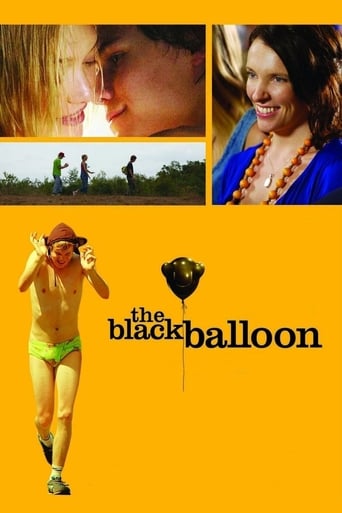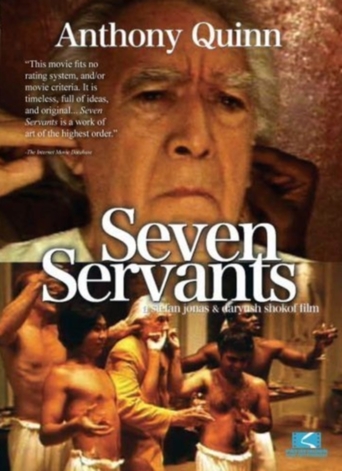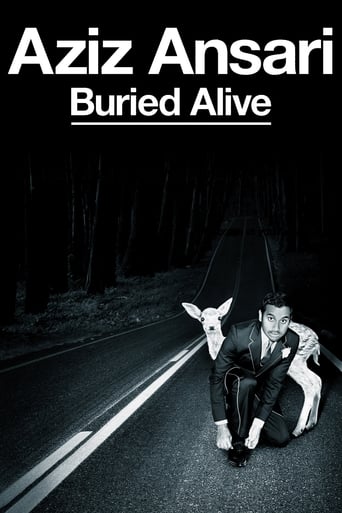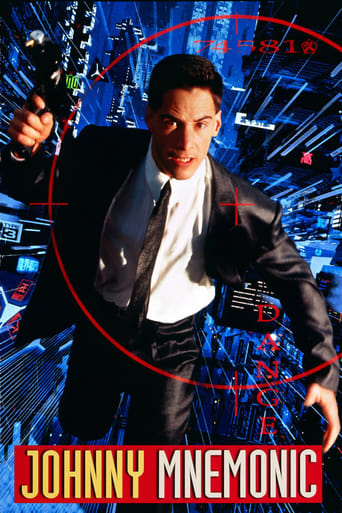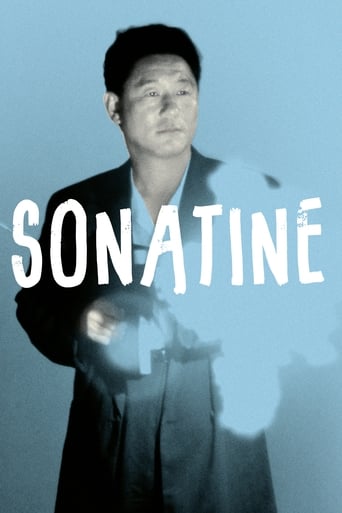


Sonatine
Murakawa, an aging Tokyo yakuza tiring of gangster life, is sent by his boss to Okinawa along with a few of his henchmen to help end a gang war, supposedly as mediators between two warring clans. He finds that the dispute between the clans is insignificant and whilst wondering why he was sent to Okinawa at all, his group is attacked in an ambush. The survivors flee and make a decision to lay low at the beach while they await further instructions.
-
- Cast:
- Takeshi Kitano , Aya Kokumai , Tetsu Watanabe , Masanobu Katsumura , Susumu Terajima , Ren Osugi , Tonbo Zushi


Similar titles
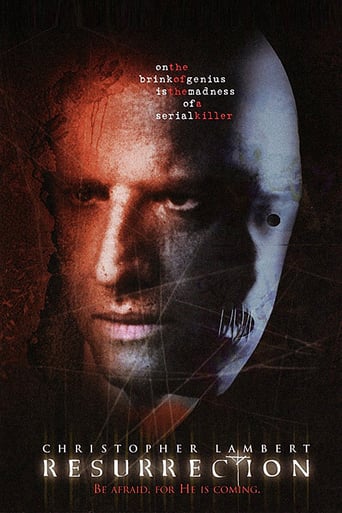
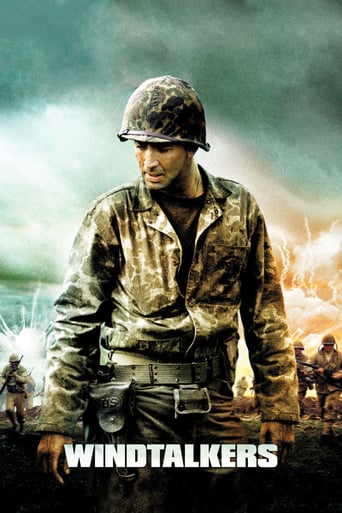
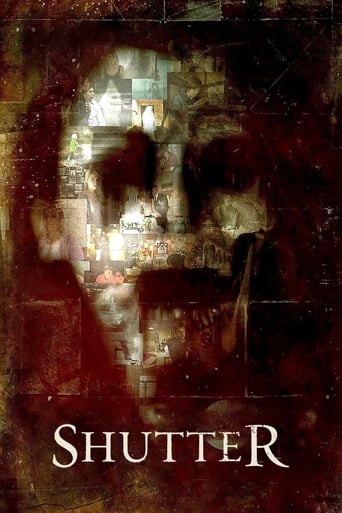
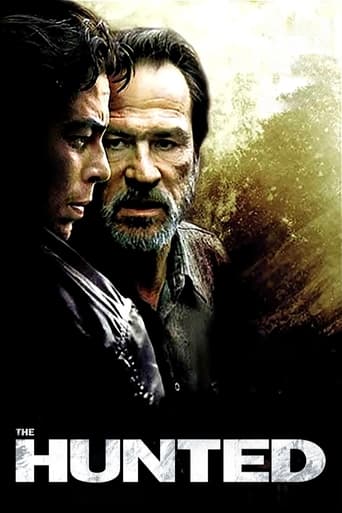
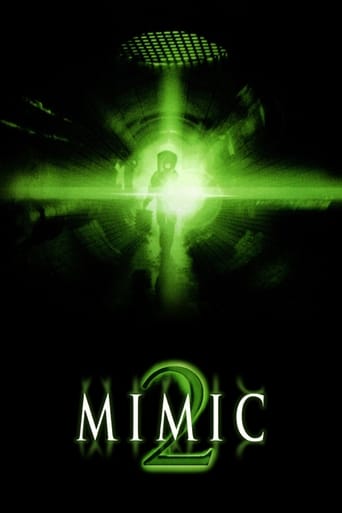
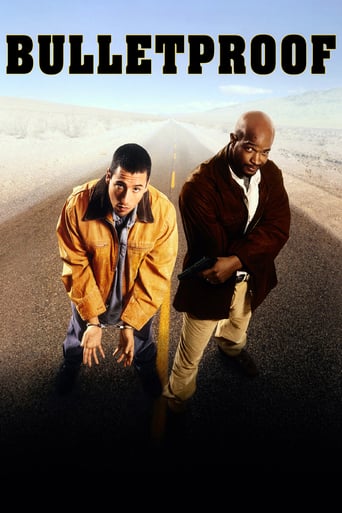
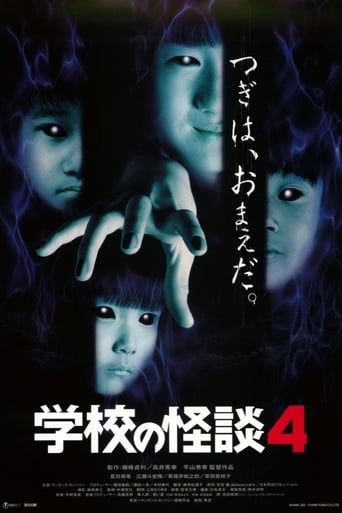
Reviews
How sad is this?
Highly Overrated But Still Good
Admirable film.
There is, somehow, an interesting story here, as well as some good acting. There are also some good scenes
Violence has always been an integral part of Japanese cinema due to its excessive focus on Yakuzas (gangsters) and their utterly senseless exploits. In recent times, two films 'Outrage' and 'Outrage Beyond' directed by Kitano Takeshi have shocked viewers beyond belief due to their excessive focus on violence which would even put American director Tobe Hooper's horror cinema classic "The Texas Chain Saw Massacre". This is just one aspect of Kitano's expertise in directing violent films. It must be stated that loyal Kitano admirers know that it all began with "Sonatine" wherein one gets to see not one but several brutish, thuggish gangsters who don't carry too much of Japanese looks on their hardened faces. Watching this film, Kitano reminds viewers about the psychological state of most gangsters. According to him the human face of gangsters is revealed when they sit idle. In 'Sonatine' this does not happen at regular intervals as either they manage to kill their rivals or are killed in fierce gun battles. When everything is quiet in a Yakuza's life, it gives rise to a series of funny games involving minimal use of guns where some moments of genuine happiness is found. It is not only violence which makes "Sonatine" an intriguing film to watch as leading player Kitano Takeshi reveals why there are hardly any expressions on his face. He reveals the secret of his fascination for guns by stating that it is due to the fear he feels in himself.
Takeshi Kitano has a really strange but oddly touching mind when it comes to making movies. I've only seen two at the moment, this and Zatoichi, but they reveal a filmmaker who is so not content with doing something "normal" in the genre and at the same time has something relating to respect for the formal attitudes with what he's doing. This isn't a crazy Yakuza movie, for example, in the vein of a Takashi Miike. There's a far more sinister and just flat out cold core that Kitano wants to reach with Sonatine, and it's not through going for an outlandish visual style. It's maybe closer to minimalism, but then that's not entirely correct either. The closest one sees to how detached, if that's the term, Kitano makes his characters, just watch the scene where the yakuza have the one member tied to the crane and dip him slowly, agonizingly into the water, pull him up, and dunk him again. The way this is shot, edited, acted, all refers to the tone of the piece. Kitano may not play by the "rules", if there are any, but it's exciting to see him go in unexpected directions.If you're expecting what the video-case is advertising (i.e. the not quite correct comparison as "Strongly reminiscent of Goodfellas"), you'll be thrown for a loop, and possibly not in the way you'd like. But if one meets Kitano half-way, then there's ample room to be absorbed in these characters. This is important, and maybe the one thing right about comparing to Goodfellas, which is that Kitano has here some very curious characters, and only worries about a semblance of plot from time to time. We're given a host of gangsters, led by Murakawa (Kitano), who have to hide out for a while at some remote cabin by a beach while a gang-war is brewing. At first, it appears liken Kitano is making a standard if very oddly interesting genre piece, with a beating in a bathroom, a shooting at a bar, and some of the usual curses flying and men in suits talking of business affairs.But even in these early scenes something doesn't feel quite realistic, despite the appearances of the ordinary. Just watching that shootout at the bar, everything seems kind of calm, however a surprise, when the bullets start flying and Murakawa and his guys shoot against some rivals. They look placid, not excited or with the usual amount of adrenaline flowing. After this, the story moves to that big middle chunk of the picture, where Murakawa and the others have a kind of playful attitude with things. What may appear to be meandering on the part of Kitano here is actually part of the point: they play Russian roulette, they do sumo wrestling (this part is especially crazy in fast-motion and music all wacky), they put on some mock plays, and Murakawa gets closer to a woman (Kokumai) who he saved from a rape. All the while we see Murakawa enjoying himself, smiling, laughing, going along with the thugs who simply want a good strong shower, trying to block out the inevitable- going back to the impending gang war.In a sense with Kitano and Sonatine, it's not what's there but what isn't. When violence occurs we get to see the blood, but it's not frantic; blood flows for a moment and we see little struggle (save for the one guy in the back of the car, which I won't say much more to spoil). I'm even reminded of Jean-Pierre Melville in how Kitano treats his "hero" in the final act, how things get even colder and more fragmented in Murakawa's mind, and yet one can't take their eyes away from the mood of it all. There's something extreme about Sonatine, and it's mostly under the surface, and it reveals a cruel and dark but also lighthearted side of Kitano that is extraordinary (apparently, he was in a very depressed state when creating it, which almost makes it like an act of cinematic purging of his soul). While it veers into being mundane in one or two scenes, and a couple of performances don't quite work, just watching Kitano and his placid profile, occasionally breaking into a smile like when he mentions killing his father as a teenager, is enough to merit it a worthwhile experience. In fact, it's almost on par with the excellence of Zatoichi, and in its own way more ambitious.
Well first of all kitano started a new genre of movie making with sonatine .I would like to propose a takeshi kitano trilogy to anyone new to his movies First would be violent cop(directed in 1989) .then comes sonatine(directed in 1993) then comes hana-bi(directed in 1997) ..Well the greatness about kitano's movies is that they show the state of his mind they are truly personal ..violent cop being his earliest effort is very raw hana-bi being a later effort was extremely well polished and complete but sonatine was directed at a time when kitano was contemplating suicide It shows the disturbed state of his mind ..It is like a modern version of Samuel Beckett's "waiting for Godot" .minimalistic dialog philosophical long shots and bursts of violence .I think it depicts the state of a mind driven to an edge......You watch this movie when you are happy you perceive it differently you watch it when you are sad you will perceive it differently .It remains in your memory long after the final scene ..It is a visceral experimentation with a subject which movies rarely touch, suicide It is kitano at his best and according to me the one of the greatest movies of the nineties And the background track from Joe hisashi mesmerizing ..All in all if someone cannot appreciate this movie then they it means they cannot appreciate art ..Their minds are so consumed by the commercial formulaic jargon(manufactured emotions and exaggerated relationships) coming out of the stables of large film industries like :- Hollywood, hong Kong(martial arts wi-fi flicks) etc. that they cannot appreciate true gems like this one .Finally this movie was a commercial failure in Japan (even Japanese themselves find it hard to appreciate Kitano) ..But when it was shown to famous French film critic Alain Delon , He was taken aback by kitano's acting and is quoted to have said :- "what's THAT? [...], this is not an actor [...], he only got three facial expressions and he almost doesn't talk on top of this". At the same time he was both fascinated and puzzled by this new genre of movie making. Finally In 1995, Sonatine entered the 13th Festival Du Film Policier De Cognac (Thriller Film Festival of Cognac) in France, where it was critically acclaimed and got some recognition it truly deserved .I would give this movie a ten on ten thank you ..
Others have commented that the main character in this brilliant film is a burnt-out husk of a man. Although this is certainly true from one viewpoint, I would like to emphasize an alternative perspective.Murakawa, the gangster, is already one of the "grateful dead." He has been through so much in his life that he is indeed "burnt out," but there is also a good sense to this term. Life's vicissitudes have grounded him in a zen-like serenity beyond concerns about life and death. Life can only draw him out enough to express mild amusement. During a shootout, he stands calmly blazing away, oblivious to the bullets flying around him. It is this divine detachment that makes true "play" possible, as we witness in the playful beach scenes. His personality, or more accurately, his character, is standing on something beyond the phenomenal. He is able to go through the motions of being a gangster, but it is as if he is watching the violent play in which he is involved with a godlike detached amusement. This is much like the character Takeshi Kitano plays in "Zatoichi, the Blind Swordsman." The movie is a fusion of gangland action and Buddhist sensibility--a very Oriental gangster flick.The film is a masterpiece--from the serenity of the beautiful Okinawan landscape to the perfection of the musical score. It reminds me of Yeats' famous tombstone: "Cast a cold eye on life, on death . . . ," but I would revise it to say "Cast an amused eye on life, on death . . . ." The fearsome Hindu death goddess Kali, with her girdle of skulls, has one palm raised in a gesture of "fear not." So it is with the calm at the center of this violent film.

